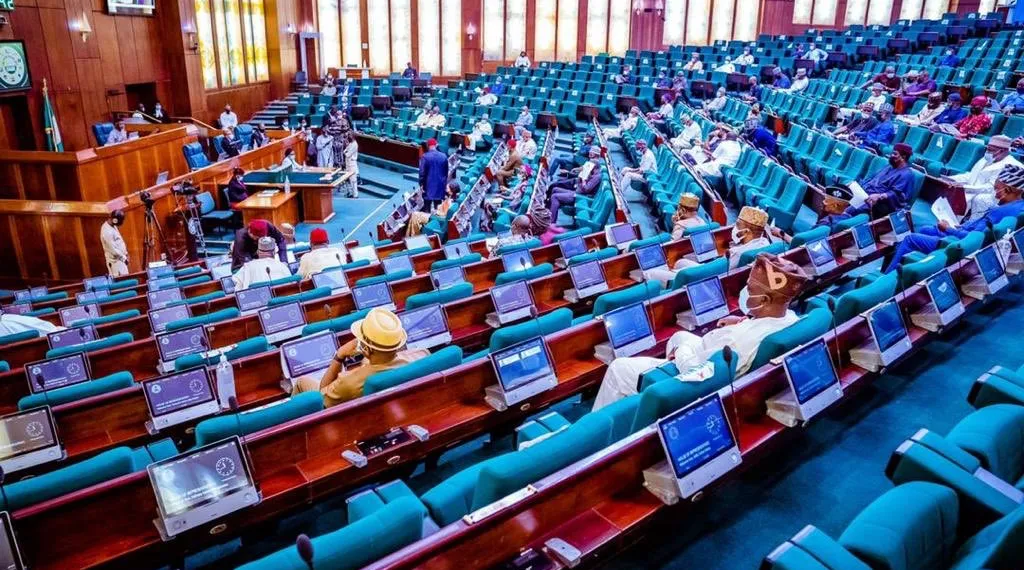
WafricNews – June 1st, 2025
Abuja, Nigeria - In a bold move to tackle corruption at the grassroots of Nigeria’s professional landscape, the House of Representatives is considering a bill that would impose stiff penalties on bribery within workplaces. The bill, if passed, would make both the giving and receiving of bribes a criminal offence punishable by up to seven years in prison or a fine of not less than ₦5 million.
Abuja, Nigeria - In a bold move to tackle corruption at the grassroots of Nigeria’s professional landscape, the House of Representatives is considering a bill that would impose stiff penalties on bribery within workplaces. The bill, if passed, would make both the giving and receiving of bribes a criminal offence punishable by up to seven years in prison or a fine of not less than ₦5 million.
Sponsored by Hon. Paul Nnamchi (Enugu East/Isi-Uzo Federal Constituency) and three co-sponsors, the proposed legislation is titled “A Bill for an Act to Provide Effective Deterrence and Consequences for Bribery in Workplaces.” It is scheduled for further debate when the House reconvenes on June 17.
The bill aims to stamp out bribery in both public and private sectors — including government institutions, NGOs, corporate entities, and professional services — by enforcing strict consequences and preventive measures.
What Counts as Bribery?
According to the bill, bribery is defined as the offering, giving, receiving, or soliciting of anything of value — whether cash, gifts, favours, or other benefits — as a form of influence in workplace decisions or conduct.
Under the proposed provisions, individuals found guilty of offering a bribe could face a fine of at least ₦5 million or three times the value of the bribe, whichever is greater, in addition to a minimum seven-year jail term. Those who receive or solicit bribes could face even tougher penalties — up to 10 years in prison and matching fines.
Public Officials, Companies Face Heavier Sanctions
For public officials, a conviction under the bill would lead to outright dismissal from public service and a 15-year ban from holding any political or appointed office.
In the case of corporate bodies, the stakes are higher. Convicted companies would face fines no less than ₦100 million, while executives or officers responsible would risk a minimum of 10 years in prison. Offending firms could also lose their operating licences and face a 10-year ban from bidding on public contracts.
Whistleblower Protection and Employer Accountability
The bill also outlines protections for whistleblowers and places responsibility on employers to create an anti-bribery culture. All workplaces would be mandated to implement anonymous reporting channels and internal policies against bribery.
Any individual or organisation found to have retaliated against whistleblowers would face a minimum ₦10 million fine and five years’ imprisonment.
Furthermore, failure to report incidents of bribery could cost employers ₦20 million or five years behind bars, according to the proposed legislation.
Enforcement and Oversight
To ensure implementation, the bill proposes the establishment of a Workplace Anti-Bribery Unit under the Economic and Financial Crimes Commission (EFCC). This special unit will be responsible for investigations, prosecution of offenders, and ongoing monitoring of compliance.
In addition, assets and funds derived from workplace bribery would be seized and redirected toward anti-corruption and national development programmes.
The Minister of Justice and Attorney General of the Federation is expected to coordinate with the EFCC to issue regulations guiding the enforcement of the proposed law.
If passed, this legislation would mark a significant escalation in Nigeria’s fight against everyday corruption and strengthen the nation’s institutional integrity from the ground up.
By WafricNews Desk.
By WafricNews Desk.


Comment
To post a comment, you have to login first
LoginNo Comments Yet...